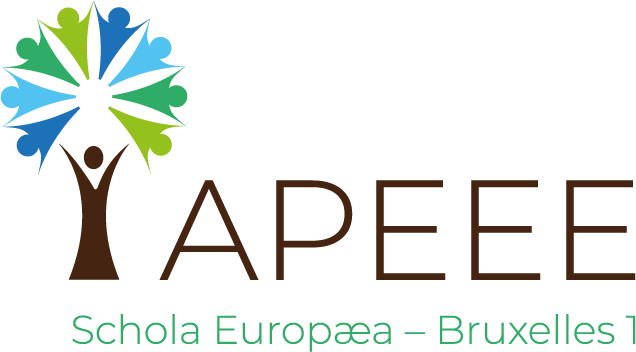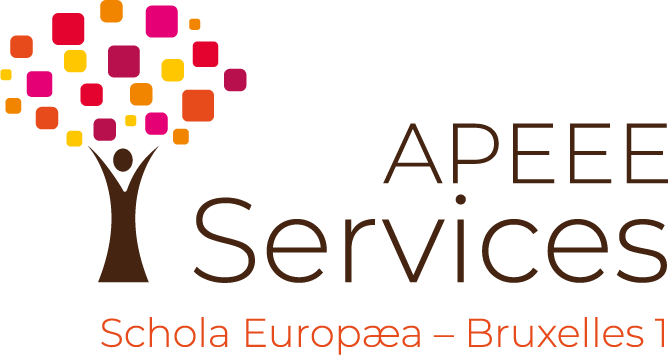Drugs and Addictions
Primary Interlocutors: Well-Being Working Group and Legal Working Group
The APEEE Well-Being Working Group has worked closely with the school during the last years to ensure that a drug programme is in place; this, in the context of our broader Well-Being programme. After several years running, the programme Stop à la Drogue was discontinued in 2019-2020, as it was considered outdated and the feedback received from students was not satisfactory.
Since then, the deputy coordinator of the Well-Being Group has worked intensively with the school management to replace the programme. After months of work, several options were proposed by the APEEE representative based on consultations with Belgian expert agency CGG (http://www.cgg-brussel.be/); however, unexpectedly the school management did not agree with any of them, despite the fact that they were European Commission validated programmes, nor did they propose alternatives. In consequence, as from the previous school year no comprehensive drug programme has been offered to EEBI secondary students.
At the same time, a school task force was set up to continue the work begun in 2019 to update the EEBI Guidelines for the Care and Prevention of Addictions under the guidance of CGG in order to more closely align the policy with Belgian legal requirements and current expertise. With the arrival of COVID-19, work on this came to a halt, and a final draft is still pending.
APEEE Position
The APEEE draws attention to the fact that as of September 2019 the school has had no comprehensive drug programme in place. We believe that the situation as it stands leaves our students vulnerable and without adequate support. The APEEE stresses that the document Child Protection (ref. 2007-D-441-en-5), approved by the Board of Governors in May 2008 and published on the European Schools website (https://www.eursc.eu/BasicTexts/2007-D-441-en-5.pdf), lays down certain responsibilities for the management and staff of European Schools, in particular requiring them to develop a child protection policy, with the involvement of parents:
- Article 1.1 “Following the principles above and the guidelines below, each school has to develop its child protection policy and procedures in place (taking account of local legislation as well) and this policy is to be communicated to parents whose representatives should be involved in creating the document. Publication and dissemination of the policy on child protection would be vital to ensure ownership of the policy and compliance of all members of the school community.”
In addition the School should educate children through the curricular programme on topics such as EVRAS, internet safety, cyberbullying and drug and alcohol abuse.
- Article 1.4 “Schools should educate children through the curriculum programmes in the fields of the danger of emotional, physical and sexual abuse as part of Relationships and Sex Education as well as the negative effects of smoking, alcohol consumption and drug abuse as part of the Personal and Health Education programme. Schools also should educate pupils on good behaviour on the internet and safe internet use in order to avoid cases of web-bullying or false accusations, etc.”
We note that this obligation, imposed already twelve years ago, has not yet been met by our School. (Parents have recently raised this issue and requested that this necessary work commence at the September 2019, January 2020 and September 2020 EEBI Administrative Board meetings. A working group was finally launched in December 2020.)
The APEEE believes that it is imperative that the school develop a Child Protection Policy along the lines laid down in the Board of Governors document. To ensure the continued safety and well being of our children, the APEEE also calls on the school to work with stakeholders to relaunch a comprehensive Drug Abuse and Addictions Programme in the 2020-2021 school year. Finally, we urge the task force to complete needed updates to the Guidelines for the Care and Prevention of Addictions (as formally requested by the APEEE already in January 2019) to bring it firmly in line with Belgian legal requirements and current expertise. Ideally a finished policy could be sent to the December School Advisory Council and approved by the school’s Administrative Board in the coming months.
Supporting Documents
![]() APEEE: Position Paper on Prevention of Addictions (January 2019)
APEEE: Position Paper on Prevention of Addictions (January 2019)
![]() APEEE: Statement on Drug Addiction Programme (15 September 2020) with Annexes: Update on Addiction Prevention Program for Secondary Students and Review of Unplugged Programme
APEEE: Statement on Drug Addiction Programme (15 September 2020) with Annexes: Update on Addiction Prevention Program for Secondary Students and Review of Unplugged Programme
See also: Well-Being Working Group and Legal Working Group
Last update: 11/05/2021



